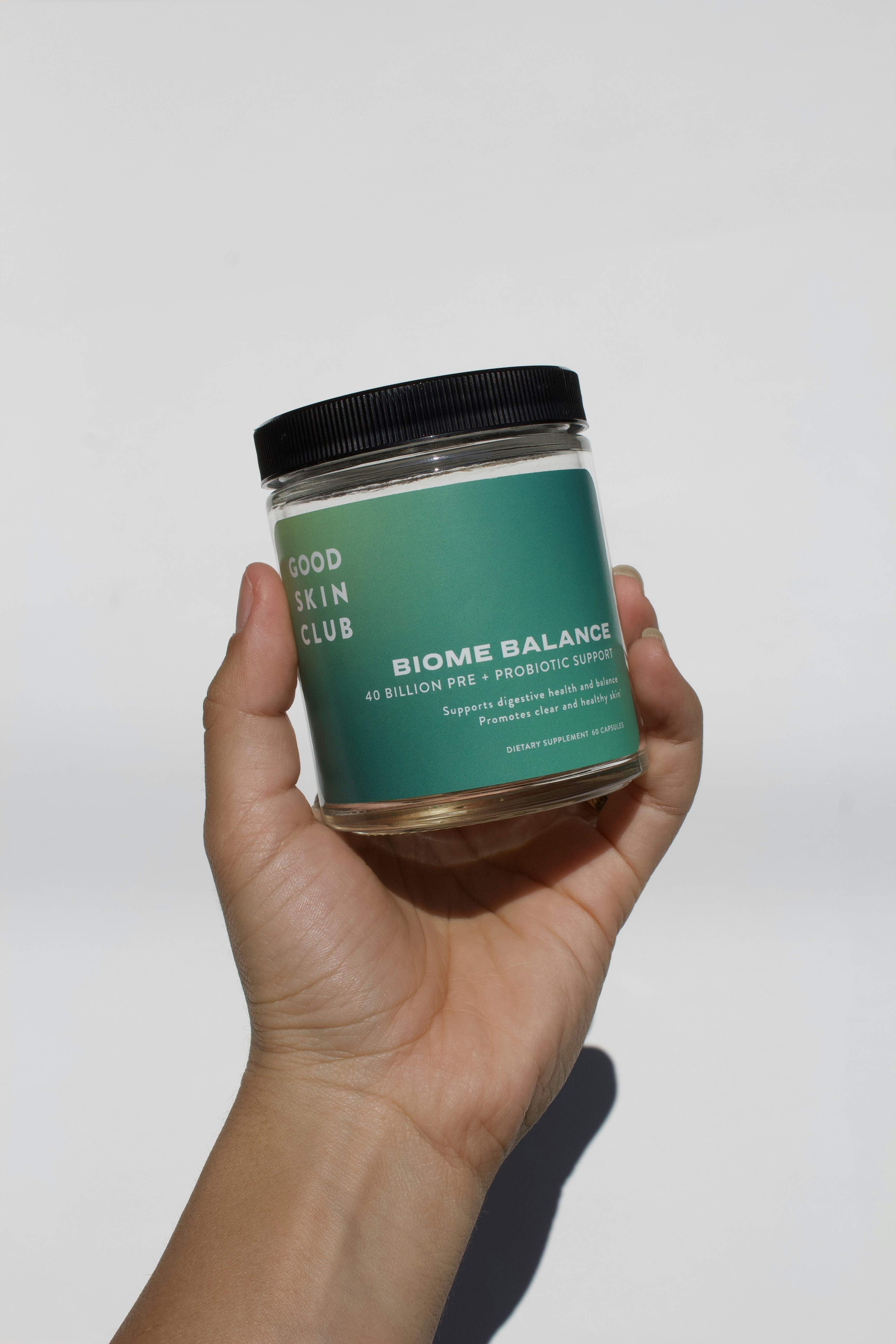Introduction to Diet Culture
Diet culture can be defined as a societal framework that equates weight loss with self-worth and promotes the idea that thinner bodies are superior. This pervasive phenomenon infiltrates various aspects of life, from media representations and advertising to everyday interactions. Social media platforms amplify these trends through carefully curated images and narratives that celebrate thinness while stigmatizing larger bodies. As a result, individuals often internalize the belief that achieving a certain body size or shape is paramount to their value as human beings.
In contemporary society, diet culture manifests in numerous ways, such as the glorification of restrictive eating practices, the popularity of weight loss programs, and the relentless marketing of products promising quick results. These elements contribute to a distorted standard of beauty that prioritizes unattainable body ideals. The constant barrage of messages regarding dieting can lead individuals to develop unhealthy relationships with food and their bodies. Diet culture often promotes the notion that success is gauged by the number on a scale, fostering feelings of inadequacy and failure among those who struggle to conform to such expectations.
Moreover, diet culture exists not only in overt messages but also in mundane conversations where phrases like “I can’t eat that” or “I’m on a diet” are casually exchanged. These dialogues perpetuate a shared understanding that equates worth with physical appearance. The repercussions of this mindset are particularly salient among women, who are frequently subjected to societal pressures to maintain an idealized figure. As we delve deeper into the personal stories shared by women regarding their toxic encounters with diet culture, it becomes evident that the societal implications extend far beyond personal choices and affect mental and physical well-being. Recognizing the harmful undercurrents of diet culture is the first step toward fostering a more inclusive and compassionate understanding of body diversity.
Understanding the Psychological Impact
The psychological ramifications of diet culture extend far beyond physical appearance; they significantly affect mental well-being. A growing body of research illustrates a concerning connection between diet culture and various mental health struggles, including body image dissatisfaction, anxiety, and depression. These issues manifest not only in women who actively diet but also in those who observe societal pressures surrounding ideal body types.
Body image dissatisfaction stands out as a profound consequence of relentless dieting and exposure to unrealistic beauty standards. Many women report feeling inadequate when comparing their bodies to those depicted in media or endorsed by peers. This dissatisfaction frequently fuels anxiety and a pervasive sense of loss regarding self-worth, compelling individuals to resort to restrictive eating behaviors. Studies have shown that this heightened anxiety often correlates with higher incidences of depressive symptoms, creating a vicious cycle that affects emotional health.
Furthermore, the ideology central to diet culture can foster disordered eating behaviors, such as binge eating, purging, or extreme calorie restriction. These behaviors not only jeopardize physical health but also create a psychological entrapment that is challenging to escape. Women who shared their experiences of navigating diet culture often reported feeling detached from their bodies, leading to an internal struggle where food takes on an emotional significance. Such experiences illustrate how diet culture can warp an individual’s relationship with food and their body, making it difficult to cultivate a healthy self-image.
In essence, diet culture is not merely a social phenomenon; it instigates deep psychological issues that can persist long after the physical side effects diminish. As the narratives of the women presented highlight, the impacts of diet culture can lead to enduring mental health challenges that require awareness and intervention.
Real Stories: Women Speak Out
The experiences shared by women in relation to diet culture reveal the pervasive emotional and physical challenges faced by many. One participant recounted how, at a young age, she felt pressured to conform to societal beauty standards, leading her to adopt extreme dieting practices that resulted in severe health implications. This narrative highlights the unrelenting nature of diet culture and the detrimental impact it can have on self-esteem and body image.
Another woman shared her struggle with social pressures, detailing how her friend group engaged in constant comparisons regarding weight and appearance. This environment fostered unhealthy habits, as she felt compelled to restrict her eating and prioritize thinness over her overall well-being. The emotional toll of these interactions served to diminish her self-worth, illustrating the toxic dynamics that often accompany diet culture.
Individuals from diverse backgrounds also provided insights into how cultural expectations contributed to their dieting experiences. One woman described the intense scrutiny different cultural contexts can place on women, often pushing them toward unhealthy behaviors to meet idealized body images. This reflects how diet culture can intersect with societal norms, causing unique challenges for women belonging to particular communities.
Additionally, a few narratives addressed the role of social media in amplifying the pressures surrounding dieting. Women discussed how platforms filled with curated images influenced their perceptions of body image and led them to pursue unrealistic goals. The relentless comparison culture propagated by social media acts as a constant reminder of how far they feel they are from the “ideal,” further entrenching toxic dieting habits.
Through the voices of these ten women, it becomes clear that the influence of diet culture is far-reaching, affecting various aspects of physical and mental health. Their stories underscore the urgent need to challenge these societal norms and promote healthier, more inclusive perspectives on body image and self-acceptance.
The Influence of Social Media
Social media has become a pervasive force in shaping societal norms and personal ideals, particularly in the realm of diet culture. Platforms such as Instagram, Facebook, and TikTok serve as both catalysts for spreading unrealistic body standards and as nurturing environments where supportive communities can flourish. For many women, the influence of social media is multifaceted; it simultaneously offers a space for connection while perpetuating harmful dieting behaviors.
On one hand, social media is often critiqued for promoting a narrow definition of beauty and health that is inherently unrealistic. The prevalence of edited images and filtered realities fosters an environment where the pressure to conform to specific body ideals becomes overwhelming. Women frequently report feeling inadequate when comparing themselves to the seemingly flawless lives presented online. This comparison can lead to unhealthy dieting practices as users may feel compelled to adopt extreme measures to achieve similar physical appearances. The narratives shared by women reveal how exposure to pervasive diet culture on social media has sometimes spiraled into disordered eating and negative body image issues.
Conversely, social media can also play a positive role in individuals’ relationships with their bodies and eating habits. Many women have found solace and support in online communities where body positivity and self-acceptance are emphasized. Such spaces allow women to share their personal stories, empowering one another to embrace their authentic selves and challenge the restrictive ideals often promoted in mainstream media. Women highlight instances where they feel liberated by influencers who advocate for healthy, balanced approaches to eating and living rather than promoting restrictive diets.
The duality of social media’s influence serves as a reminder of its complex role in diet culture. While it can radically distort perceptions of health and beauty, it also possesses the potential to encourage self-love and community support that defies societal pressures. Understanding this dynamic is essential for navigating the intricate relationship between social media, diet culture, and women’s self-identity.
Recognizing Red Flags
The pervasive influence of diet culture can often leave women feeling confused about their relationship with food and body image. To navigate this complex landscape, it is crucial to recognize the red flags that indicate unhealthy dieting practices. These signs may emerge through specific phrases, behaviors, or societal pressures that suggest a toxic influence is at play.
One of the most common red flags is the overemphasis on weight loss as a primary goal, often communicated through phrases like “shredding pounds” or “getting bikini-ready.” Such language minimizes the importance of holistic health in favor of a superficial focus on appearance. Additionally, expressions like “good” foods versus “bad” foods can signal an unhealthy mindset around eating. It is essential to understand that healthy lifestyle choices should not involve moral judgments about food.
Another important aspect to consider is the societal pressure to conform to unrealistic beauty standards. This can manifest through constant exposure to edited images in media or the glorification of extreme dieting behaviors in popular culture. Women should remain vigilant of such influences, questioning the validity and intention behind these portrayals. Moreover, any promotion of extreme calorie counting or elimination of entire food groups without a legitimate medical reason can be a significant warning signal.
Discussions surrounding diet culture can also be detrimental when they normalize harmful behaviors like binge eating or restrictive eating patterns. It is essential to differentiate between healthy lifestyle choices, which promote balanced nutrition and self-care, and harmful dieting practices that could trigger negative health consequences. By critically evaluating their experiences and remaining aware of these red flags, women can empower themselves to make informed decisions about their health and well-being.
Moving Towards Body Positivity
The journey towards body positivity is essential in combating the pervasive impact of diet culture. Embracing the philosophy of health at every size reinforces the importance of nurturing self-acceptance and self-love, regardless of body shape or size. Women can actively cultivate body positivity by initiating several practical steps that promote a healthier relationship with their bodies.
One of the first steps in this transformative journey is practicing self-compassion. This involves treating oneself with kindness during moments of perceived inadequacy. Instead of harshly criticizing physical appearance, individuals are encouraged to replace negative thoughts with affirmations of intrinsic worth that extend beyond their physical forms. This shift in mindset allows women to appreciate their bodies for their functionality and resilience rather than mere aesthetics.
Another effective method in embracing body positivity is to surround oneself with supportive communities. Engaging with groups that celebrate diversity in body types can serve as a powerful reminder that beauty is not confined to societal standards. These communities often provide validation and encourage open discussions about experiences with diet culture. Hearing others’ stories can foster a sense of belonging and lessen feelings of isolation.
Furthermore, women can take active steps to challenge societal norms related to beauty and size. This can include curating their social media feeds to include body-positive advocates and unfollowing accounts that perpetuate unrealistic standards. By diversifying their sources of inspiration, individuals can cultivate a more holistic view of beauty that celebrates all bodies.
Ultimately, the shift towards body positivity is a personal journey filled with reflections and realizations. By embracing self-love, engaging with supportive communities, and challenging societal standards, women can reject the toxicity of diet culture and foster an environment of acceptance and appreciation for all body types.
Support Systems and Resources
Women who have faced the negative repercussions of diet culture often find that seeking support is crucial in their journey toward recovery. One of the most beneficial resources available is professional help from therapists and nutritionists who specialize in body image and eating disorders. These professionals provide a safe space for women to explore their feelings about food, body image, and the societal pressures they face. Therapy can help in re-framing negative thought patterns associated with diet culture, while nutritionists can assist in developing a balanced, healthy relationship with food, free from the restrictions imposed by faddish diets.
In addition to professional guidance, support groups offer a community of individuals who have similar experiences. These groups create an environment where women can share their stories, challenges, and victories, fostering a sense of belonging and understanding. Engaging with others who have faced similar struggles often helps individuals feel less isolated and more empowered to challenge the harmful messages perpetuated by diet culture.
There are also numerous online resources available that provide information on body positivity and healthy eating practices. Websites and social media platforms dedicated to these topics often share stories, tools, and supportive messages that can be instrumental in fostering a positive mindset. Following advocates and organizations that promote body acceptance can offer daily encouragement and reminders that one’s worth is not defined by weight or appearance.
Ultimately, the path to recovery from the grip of diet culture is multifaceted and requires a combination of professional help, community support, and personal commitment to self-acceptance. As these women have discovered, utilizing these resources can significantly enhance their overall well-being and foster a healthier relationship with themselves and their bodies.
Breaking Free from Diet Culture
Diet culture often promotes unrealistic ideals surrounding body image, leading individuals to engage in harmful eating behaviors and restrictive diets. To effectively break free from this cycle, it is essential to adopt actionable strategies that foster a healthier relationship with food. One significant approach is practicing mindful eating. This technique encourages individuals to pay attention to their body’s hunger and fullness signals, allowing them to enjoy their meals without guilt. By savoring each bite and focusing on the experience of eating, one can cultivate a more positive disposition toward food.
Another beneficial strategy involves reframing the concept of health and fitness. Many women who have shared their experiences of escaping diet culture suggest shifting the focus from achieving a specific body size to enhancing overall well-being. This shift allows individuals to prioritize activities that bring joy and fulfillment, such as yoga, dancing, or outdoor activities. These women emphasize that movement should feel liberating rather than punitive, encouraging a mindset that values health above appearance.
Furthermore, fostering a balanced perspective on nutrition is crucial. This means allowing oneself to enjoy a variety of foods without labeling them as “good” or “bad.” Women breaking free from diet culture often advocate for inclusivity in their eating habits, recognizing that all foods can fit into a healthy diet. This perspective helps dismantle the guilt associated with indulging and promotes a sustainable, enjoyable relationship with food.
Ultimately, the journey to break free from diet culture is personal and often challenging. However, as women share their experiences and insights, it becomes clear that embracing mindfulness, prioritizing joy in movement, and allowing for a diverse diet can lead to profound freedom from the constraints of societal expectations. By implementing these strategies, individuals can reclaim their agency over food and body image, paving the way for a healthier future.
Conclusion: Embracing Individual Journeys
As we reflect on the diverse experiences shared by ten women regarding the detrimental effects of diet culture, it becomes evident that each journey away from this pervasive mentality is unique and valid. The narratives encapsulate a broad spectrum of emotions and challenges, illustrating how deeply entrenched societal standards can negatively influence self-esteem and body image. Each woman’s experience highlights the significance of recognizing and valuing individuality, particularly in a culture that often promotes uniformity in appearance and behaviors related to food and fitness.
Central to these shared experiences is the understanding that escaping the grips of diet culture is not merely a personal battle but often necessitates community and supportive networks. The strength that comes from communal engagement and empathy cannot be overstated. By fostering dialogue, we can create understanding and validation for those who have felt alienated by unrealistic beauty standards. Each story reflects the courage to confront insecurities and embrace personal definitions of health and beauty, paving the way for others to do the same.
Encouraging readers to share their own experiences can foster a culture of openness and healing, where women’s voices are amplified and celebrated. By creating a safe space for conversation, we can continue to dismantle the harmful narratives propagated by diet culture. The importance of solidarity in this journey is paramount; acknowledging that every woman’s path diverges makes it clear that there is no singular way to heal. As we move forward, let us remember to support one another, share our stories, and promote a holistic view of health that honors each individual’s journey.










